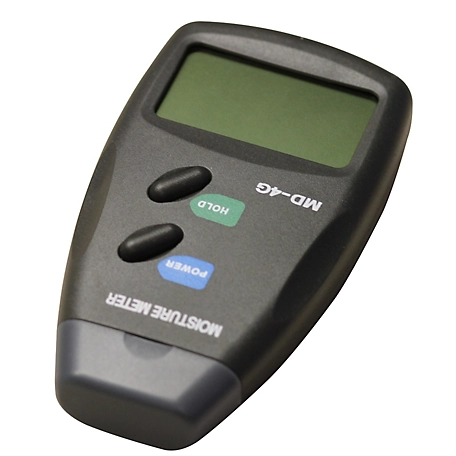The Scientific Research Behind Moisture Meters: Exactly How They Function and Why They're Necessary
The Scientific Research Behind Moisture Meters: Exactly How They Function and Why They're Necessary
Blog Article
The Ultimate Guide to Dampness Meters: A Comprehensive Review and Exactly How They Can Save You Money
Moisture meters offer as indispensable devices in spotting and keeping track of moisture web content in materials, helping in preventing expensive problems and guaranteeing the top quality of products. Comprehending the subtleties of different kinds of moisture meters, their applications, and the possible cost-saving benefits they use can be a game-changer for businesses and experts alike.
Kinds of Moisture Meters
One usual kind is the pin-type dampness meter, which measures the electric resistance in between 2 pins inserted into a material. Pinless moisture meters, on the various other hand, usage electro-magnetic sensing unit plates to scan a larger area without creating damages to the product's surface.

Infrared dampness meters determine the thermal homes of a product to establish its wetness web content non-invasively, making them beneficial for applications where pin or pinless meters may not be appropriate. Comprehending the different types of moisture meters readily available can help industries select the most appropriate tool for their specific wetness measurement demands.

Advantages of Making Use Of Wetness Meters
Moisture meters offer important advantages in accurately assessing and keeping track of moisture levels in varied products and atmospheres. One of the main benefits of using moisture meters is the avoidance of possible damage caused by excess dampness.
Additionally, making use of wetness meters can lead to raised energy performance. In agricultural settings, dampness meters play a vital role in maximizing plant yields by allowing farmers to keep an eye on dirt moisture levels and make notified watering choices.
How to Pick the Right Moisture Meter
When selecting a wetness meter, it's necessary to make sure that the meter is appropriate for the particular material you will certainly be screening. Different products have differing electrical properties that can influence wetness readings, so picking a meter created for your material is essential for precise results. By carefully reviewing these variables, you can select a wetness meter that meets your demands and supplies exact moisture measurements for your projects.
Appropriate Techniques for Moisture Meter Use

Price Savings With Dampness Meter Applications
Just how can the strategic usage of wetness meters cause significant price financial savings across different industries? Wetness meters play an important function in expense savings by preventing potential damages and making sure high quality control in different industries. In the agriculture sector, wetness meters aid in determining the optimum time for collecting crops, avoiding over-drying or excess dampness that can affect the final item's top quality. This accurate monitoring aids farmers prevent unnecessary losses see this here and optimize their yield.
In a similar way, in building, dampness meters assist protect against expensive problems by discovering moisture levels in structure materials, such as timber or concrete, which can lead to architectural concerns if not resolved quickly. By recognizing problem areas beforehand, professionals can take rehabilitative steps to prevent extensive repair services Check This Out or substitutes, ultimately saving money and time.
Furthermore, in the food processing sector, moisture meters are vital for monitoring product top quality and ensuring compliance with security laws. By accurately determining wetness web content in foodstuff, manufacturers can avoid wasting, keep quality, and reduce waste, leading to considerable price financial savings. Overall, the tactical application of wetness meters is a useful financial investment that can cause significant price decreases and improved efficiency across various industries.
Conclusion
In verdict, wetness meters are important devices for gauging and finding moisture degrees in different products. By using the right dampness meter and following correct methods, users can successfully avoid pricey damages created by excess moisture.
Dampness meters serve as crucial my latest blog post tools in detecting and keeping an eye on moisture content in products, aiding in stopping pricey damages and making certain the quality of items. Infrared moisture meters determine the thermal homes of a product to determine its wetness web content non-invasively, making them useful for applications where pin or pinless meters may not be ideal.Moisture meters provide very useful advantages in precisely analyzing and keeping track of moisture levels in diverse products and environments. In agricultural settings, wetness meters play a critical role in optimizing crop yields by making it possible for farmers to check soil moisture levels and make informed irrigation decisions.In final thought, dampness meters are beneficial devices for spotting and determining dampness degrees in numerous products.
Report this page